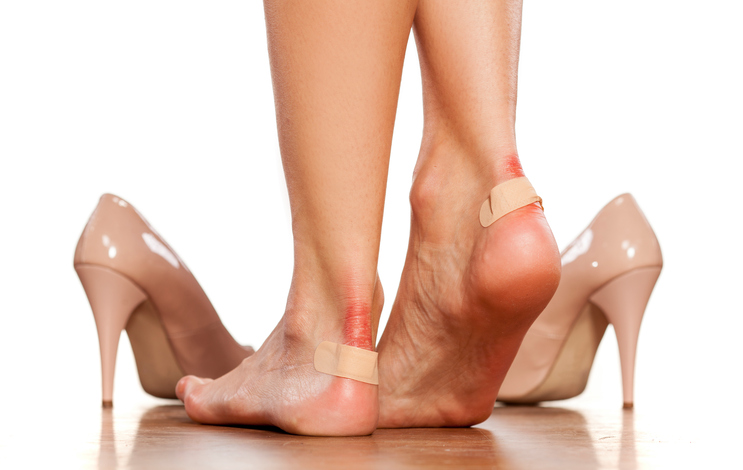blister
(noun, verb)
/ˈblɪstɚ/
 LISTEN
LISTEN


These shoes give me blisters!
A blister is a thin swelling on the skin that contains liquid, like the ones you get from friction or burning. Anything that looks like that—for example, an air bubble in paint—is also called a blister. Blister is also a verb that means ‘to cause to swell’ or ‘to get a blister.’ Figuratively, it means ‘to be subject to really intense heat’ and, informally, to blister means ‘to criticize severely’ or ‘to punish’.
Example sentences
- Oliver was left with blisters after spilling boiling water on his hand.
- There are blisters in the paint where it has been exposed to the sun.
- These new shoes have blistered my heels.
- Karen's skin blistered as a result of her sunburn.
- A heatwave is currently blistering the south of the country.
- The boss blistered the team for their poor performance.
Did you know?
Everyone has had a blister at one time or another, and those of you who practice sports probably get them more often, since they can easily be caused by friction when there is a bit of moisture. Activities like long-distance running or hiking, in particular, make blisters so common that even the pros get them. There are many recommendations to avoid blisters, and these include making sure your shoes fit comfortably, putting petroleum jelly on your skin to prevent friction, or putting tape on the inside of a shoe if there is a spot that irritates your skin. If you do get a blister, what should you do? Some people like draining the fluid out, while other do not. Doctors say that it depends on where the blister is, and whether it will still be subjected to friction. One thing they all agree on, however, is that draining a blister can make infection easier, so you should never do it yourself with unsanitary materials.
Additional information
A blister, or blister pack, is a small covering of plastic, usually affixed to a piece of cardboard, foil, or flat plastic, and containing a small item, as a pen, bolt, or medicinal pill, like this one.
In pop culture
Listen to the Violent Femmes singing “Blister in the Sun:”
Origin
Blister dates back to the mid-13th century, in the form of the Middle English noun blister or blester. Linguists are unsure how it came into the English language. Some think it came through the Old French noun blestre (bump, lump, or blister), but originated in a Scandinavian language, such as Old Norse, where blǣstri, was the dative of blāstr (swelling). Others “cut out the middle-man,” and think it’s more likely that the term came directly from Old Norse or another Scandinavian language into English. A third group points to the Middle Dutch blyster (swelling) as the possible origin. In any case, the word can be traced back to the Proto-Indo-European root bhlei- (to blow, to swell), which also gave us the English words blast and blow. The verb comes from the noun, and first appeared in the late 15th century, meaning ‘to become covered in blisters.’ This meaning expanded to ‘raise blisters on something’ in the mid-16th century. The figurative senses quickly followed.
Word of the Day is released Monday through Friday.



